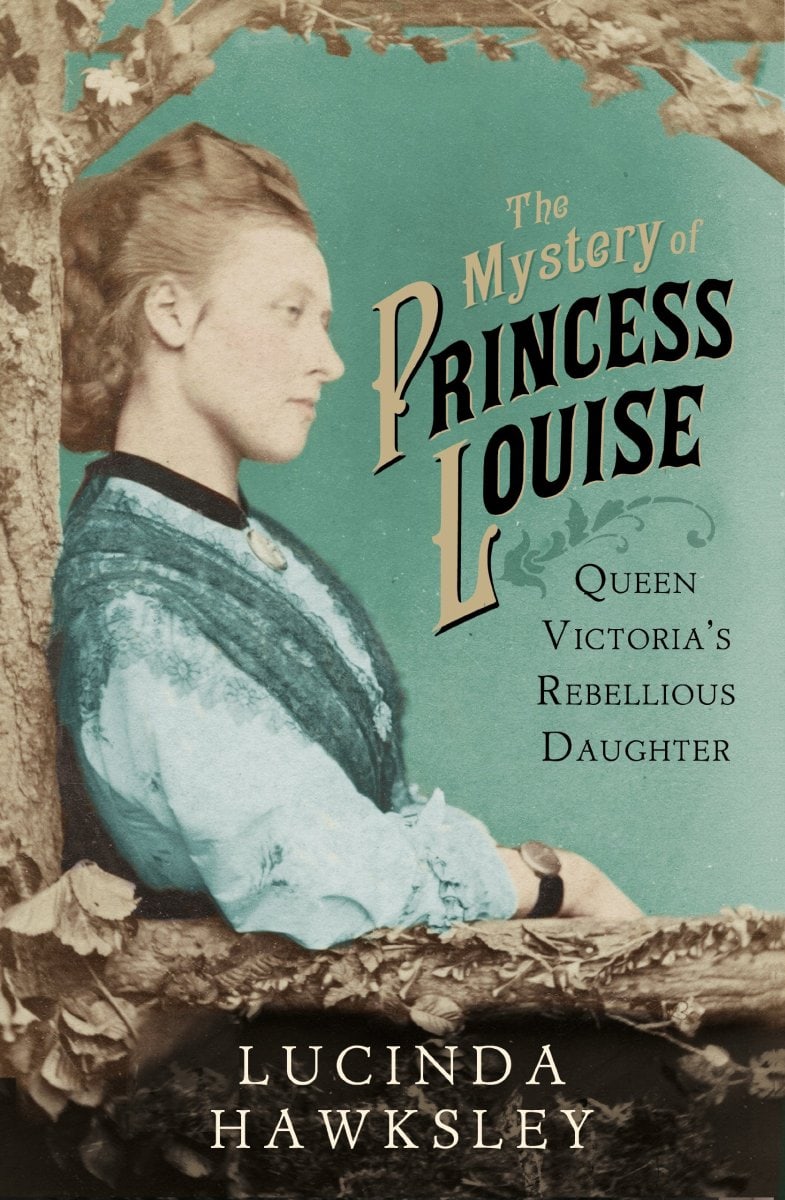
The secrets of Queen Victoria’s sixth child, Princess Louise, may be destined to remain hidden forever. What was so dangerous about this artistic, tempestuous royal that her life has been documented more by rumour and gossip than hard facts? I first came across Princess Louise’s name when researching my biographies of Lizzie Siddal and Kate Perugini, I wondered who this art-loving princess really was. When I started to investigate, often thwarted by inexplicable secrecy, I discovered a fascinating woman, modern before her time, whose story has been shielded for years from public view.
Louise was a sculptor and painter, friend to the Pre-Raphaelites and a keen member of the Aesthetic movement. The most feisty of the Victorian princesses, she kicked against her mother’s controlling nature and remained fiercely loyal to her brothers, especially the sickly Leopold and the much-maligned Bertie. She sought out other unconventional women, including Josephine Butler, Elizabeth Garrett Anderson and George Eliot, and campaigned for education and health reform and for the rights of women. She battled with her indomitable mother for permission to practice the “masculine” art of sculpture and go to art college – and in doing so became the first British princess to attend a public school.
The rumours of Louise’s colourful love life persist even today, with hints of love affairs dating as far back as her teenage years, and notable scandals included an illegitimate baby, possibly with her brother’s tutor, and romantic entanglements with her married sculpting tutor Joseph Edgar Boehm and her sister Princess Beatrice’s handsome husband, Liko. True to rebellious form, she refused all royal suitors. “Spirited and lively, The Mystery of Princess Louise is richly packed with arguments, intrigues, scandals and secrets, and is a vivid portrait of a princess desperate to escape her inheritance.”
You can buy The Mystery of Princess Louise in all good bookshops or order the new paperback online:
Reviews:
The fullest biography yet of a princess who was friends with Josephine Butler, a feminist and advocate for the health of sex workers, well deserves its place on the shelf
Lucy Worsley in The Sunday Express
With royal biography the reviewer’s task can sometimes be a disappointing one, faced with little more that the updated retelling or, worse still, hagiography. The Mystery of Princess Louise stands out as a bold and insightful portrait of a remarkable woman.
Jonathan Taylor in Royalty
It’s these whispers that make Lucinda Hawksley’s new biography such an intriguing prospect … Satisfyingly replete with eye-popping stories of life at the various palaces…. [I was] caught up with this improbable princess, a beautiful, charming woman who loved to bicycle and to smoke, who was always happy to share her recipe for oyster pat.
Rachel Cooke, The Observer
The Mystery of Princess Louise is a fascinating read and provides a rare look at Queen Victoria’s feisty, rebellious daughter. The mysteries that surround her can only increase both our interest and our appreciation for the life that she lived and her attempt to live it free from her mother’s control.
Stephanie Piña, Pre-Raphaelite Sisterhood
I’ve always wanted to know more about Princess Louise… Biographies of Kate Perugini and Elizabeth Siddal – who moved in similar artistic circles – drew Hawksley to her. Court secrecy meant that resourcefulness was needed to write it.
Ruth Richardson, Times Higher Education
Hawksley’s entertaining and lengthy book gives a vivid insight into Victorian royal life and the repressions and sexual hypocrisies of those days.
Anthony Looch, UK Press Syndication
Is there anything more compulsively inviting than a file marked “SECRET”? Lucinda Hawksley encountered this irresistible lure when she began research on a complete artistic biography of Queen Victoria’s sixth child. How very peculiar, creepy and revealing that royal muscle should still be exercised about long-dead figures in the 21st century.
Christopher Hirst, The Independent
Lively, engaging and buoyantly enthusiastic, Hawksley’s gallant but necessarily speculative book should encourage the royal archivists to stop being so protective.
Miranda Seymour, The Sunday Times